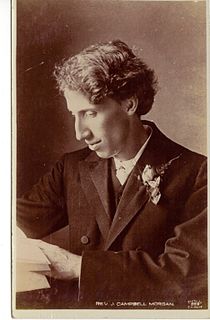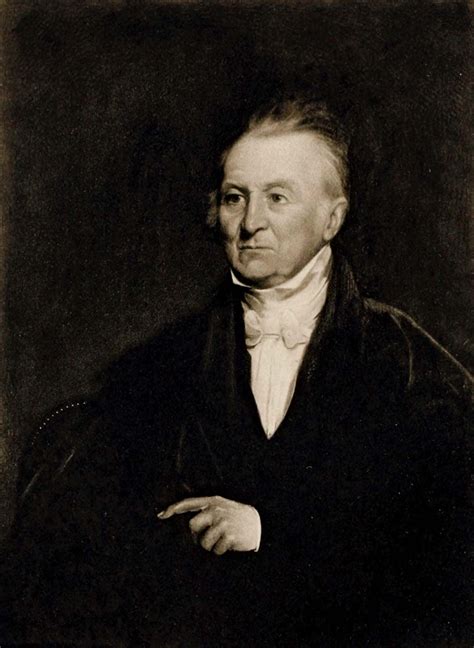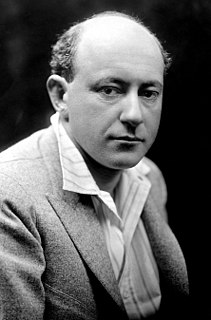A Quote by Edmond de Goncourt
One of the proud joys of the man of letters - if that man of letters is an artist - is to feel within himself the power to immortalize at will anything he chooses to immortalize. Insignificant though he may be, he is conscious of possessing a creative divinity. God creates lives; the man of imagination creates fictional lives which may make a profound and as it were more living impression on the world's memory.
Related Quotes
The problem of reconciling human suffering with the existence of a God who loves, is only insoluble so long as we attach a trivial meaning to the word "love", and look on things as if man were the centre of them. Man is not the centre. God does not exist for the sake of man. Man does not exist for his own sake. "Thou hast created all things, and for thy pleasure they are and were created." We were made not primarily that we may love God (though we were made for that too) but that God may love us, that we may become objects in which the divine love may rest "well pleased".
In the beginning the Gods made man, and fashioned the sky and the sea, And the earth's fair face for man's dwelling-place, and this was the Gods' decree: "Lo, We have given to man five wits: he discerneth folly and sin; He is swift to deride all the world outside, and blind to the world within: So that man may make sport and amuse Us, in battling for phrases or pelf, Now that each may know what forebodeth woe to his neighbor, and not to himself.
The sovereign good of man is a mind that subjects all things to itself and is itself subject to nothing; such a man's pleasures are modest and reserved, and it may be a question whether he goes to heaven, or heaven comes to him; for a good man is influenced by God Himself, and has a kind of divinity within him.
The man who has given himself to his country loves it better; the man who has fought for his friend honors him more; the man who has labored for his community values more highly the interests he has sought to conserve; the man who has wrought and planned and endured for the accomplishment of God's plan in the world sees the greatness of it, the divinity and glory of it, and is himself more perfectly assimilated to it.
Generally there is in man a divinity which strives to push him onward and upward. We believe that this power within him is the spirit that comes from God. Man lived before he came to this earth, and he is here now to strive to perfect the spirit within. At sometime in his life, every man is conscious of a desire to come in touch with the Infinite. His spirit reaches out for God. This sense of feeling is universal, and all men ought to be, in deepest truth, engaged in the same great work—the search for and the development of spiritual peace and freedom.
I believe that the unity of man as opposed to other living things derives from the fact that man is the conscious life of himself. Man is conscious of himself, of his future, which is
death, of his smallness, of his impotence; he is aware of others as others; man is in nature, subject to its laws even if he transcends it with his thought.
Man creates what he is, man creates himself. The meaning has to be created. You have to sing your meaning, you have to dance your meaning, you have to paint your meaning, you have to live it. Through living, it will arise; through dancing, it will start penetrating your being. Through singing, it will come to you. It is not like a rock just lying there to be found, it has to bloom in your being.
All the lies and evasions by which man has nourished himself civilization, in a word is the fruits of the creative artist. It is the creative nature of man which has refused to let him lapse back into that unconscious unity with life which characterizes the animal world from which he made his escape.
Man has made 32 million laws since THE COMMANDMENTS were handed down to Moses on Mount Sinai more than three thousand years ago, but he has never improved on God's law. THE TEN COMMANDMENTS are the principles by which man may live with God and man may live with man. They are the expressions of the mind of God for His creatures. They are the charter and guide of human liberty, for there can be no liberty without the law.




































